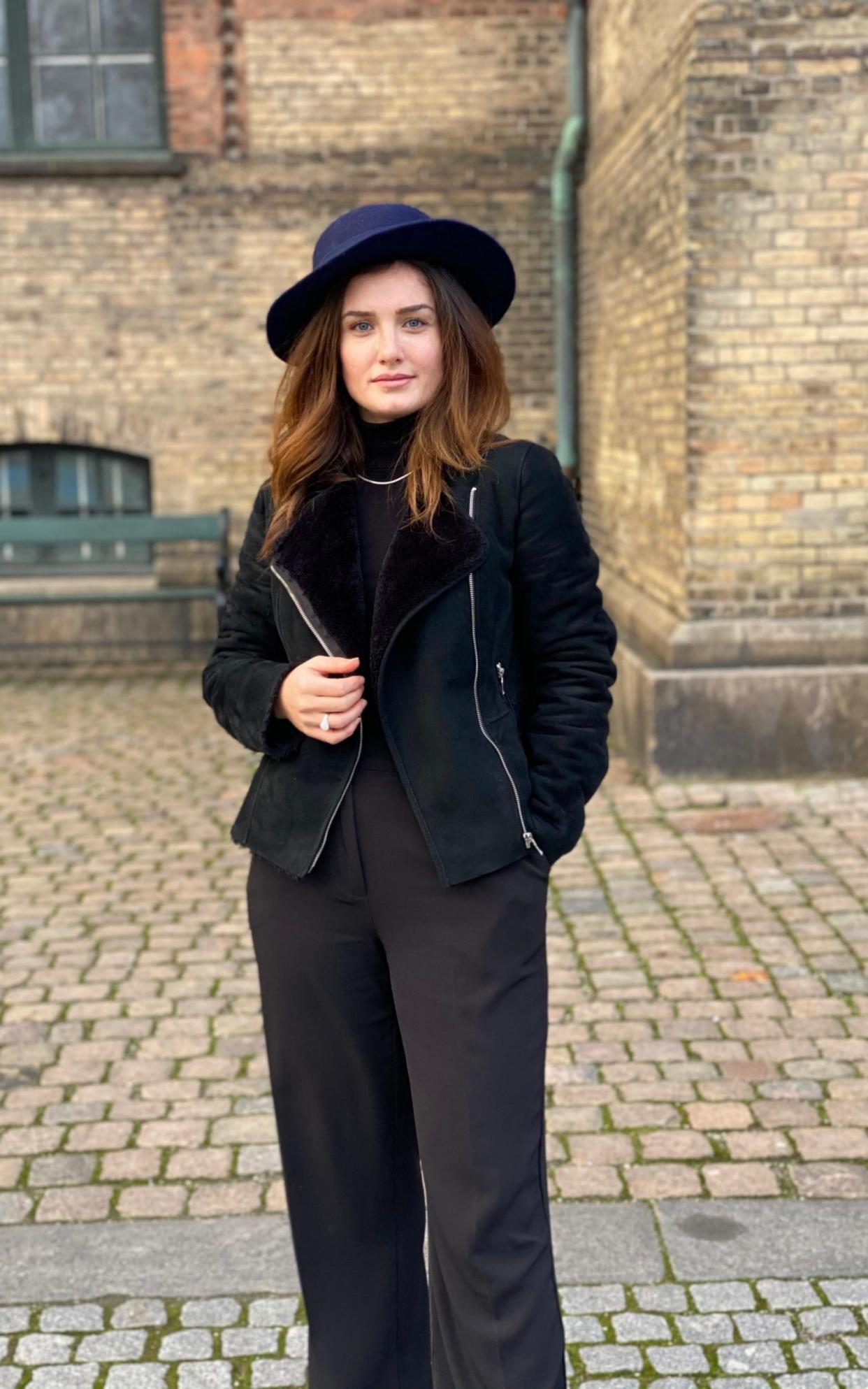Why Denmark's immigrants are losing hope of ever becoming citizens

Jino Victoria Doabi's voice cracks as she describes the bidding war between Denmark's political parties to make it harder for those born abroad to become citizens.
"It makes me feel that I'm not worth anything," the 28-year-old sobs. "I study at the finest university in Denmark and I study the hardest of everyone, and I work hard to improve democracy too, and still this is nothing - just because of where I was born."
In most respects, Denmark is a socially-progressive Scandinavian nation, with low levels of inequality, generous welfare, and liberal views on gender equality.
But the influence of the populist Danish People's Party over the last 20 years has pushed even the supposedly centrist Social Democratic and Liberal parties towards positions normally more associated with anti-Islamic populist like Donald Trump.

For immigrants like Miss Doabi, who used to be described in more welcoming times as "New Danes", the country is feeling less and less like home. Despite living in Denmark since she was eleven, Miss Doabi, whose parents were atheist Kurdish refugees from Iran, has yet to gain citizenship.
And if a new proposal from the populist New Right and Danish People's Party wins the backing of the parties of the centre-right and centre-left, she perhaps never will. The New Right's proposal would split those eligible for citizenship into two groups - those from predominantly Muslim areas such as the Middle East, North Africa, Turkey, Afghanistan and Pakistan, and those from elsewhere. It would mean that when parliament voted through its biannual citizenship bill, MPs would be able to vote through one group but not the other.
"It's just common sense," says Mette Thiesen, the New Right's citizenship spokesperson. "There are specific countries that we have had very bad experiences with: a lot of them have got citizenship in the last 40 years, and we can see in the statistics that both the citizens of these countries and their children are more criminal."
It's not just the populists. Under their new leader Mette Frederiksen, the Social Democrats have swung decisively to the right on immigration, winning large numbers of working-class voters back from the Danish People's Party, and grabbing the attention of ailing left-of-centre parties across Europe.
"For me, it is becoming increasingly clear that the price of unregulated globalisation, mass immigration and the free movement of labour is paid by the lower classes," Ms Frederiksen wrote in a biography published in the run-up to the 2019 election.

Her party in the run-up to the election called for a cap on "non-Western immigrants", and has called for those seeking asylum in the European Union to await their decision at a camp in North Africa. It was the Social Democrats who in December launched the inter-party talks on tightening citizenship, with a proposal to make it harder for convicted criminals to become citizens, with those convicted of terrorism, gang crimes and rape facing a lifetime ban.
Even now, Denmark's strict citizenship requirements mean that to become eligible Miss Doabi would, among other things, have to pass a Danish language test, sign an affidavit that she respects Danish values, and work an average of 30 hours a week for three and a half years after she graduates from Copenhagen University.
The Liberal Party at the start of this month called for each applicant to in addition have to answer five questions on Danish values, stating formally, for instance, that they agree that women should be able to freely chose their romantic partners. It also wants applicants to submit a cover letter explaining why they want to become Danish, and to undergo an in-person interview to double-check that they have the right thoughts and ideas.
"Good behaviour alone is not enough. If you want to be a Danish citizen, you must have taken Denmark in,” the Liberal party spokesperson for citizenship, Morten Dahlin, explained to the conservative Jyllands-Posten newspaper. "Integration is not about building bridges. Integration is about the people who come to Denmark going over the bridge that is already here."
So far, the Social Democrats have broadly supported the other parties' proposals, with the party's citizenship spokesman Lars Aslan Rasmussen asking only how the interviewers could check applicants were not lying. Susi Meret, an associate professor at Aalborg University, described the talks as "a mainstreaming of positions which 20 years ago were seen as very much belonging to the populist right."
The proposal to interview citizenship candidates in person was first floated by the Danish People's Party back in the early 2000s, and the Liberals, she suggested, had dug it up again to reassert their tough line on migration.
"This might have opened a question mark as to where the Liberals are going in relation to immigration and integration politics, so I think this is a little bit a response to the party situation," she said. For Prime Minister Mette Frederiksen, in turn, it is imperative to reassure voters that her shift to the right on immigration is here to stay.
The only parties pushing in the other direction are the small, minority parties of the centre and left, such as the Social Liberal party for which Miss Doabi is standing as a citizen representative in Copenhagen, and the Red-Green Alliance, which has attacked the interview proposals as a form of "mind control".
"It was a quite different country I came to. It was open, they loved us, they gave us everything they could to become members of society," said Ms Doabi, who speaks fluent Danish. "I never, ever in my entire life imagined I would be facing racism like this, and facing it every day. We are not quite there yet, but we are on the road to what was happening in the 1930s. It's quite scary."

